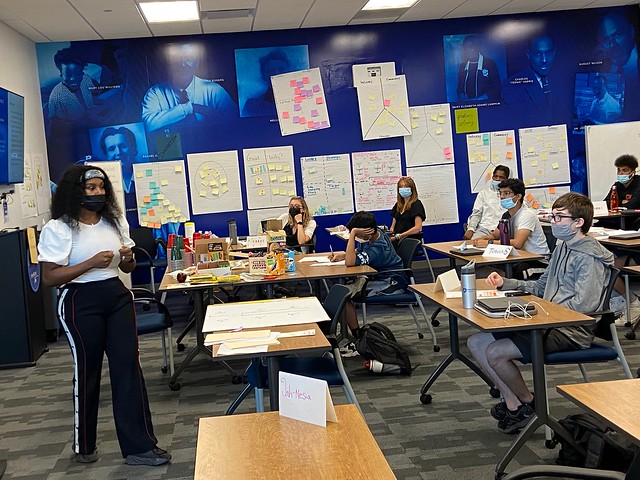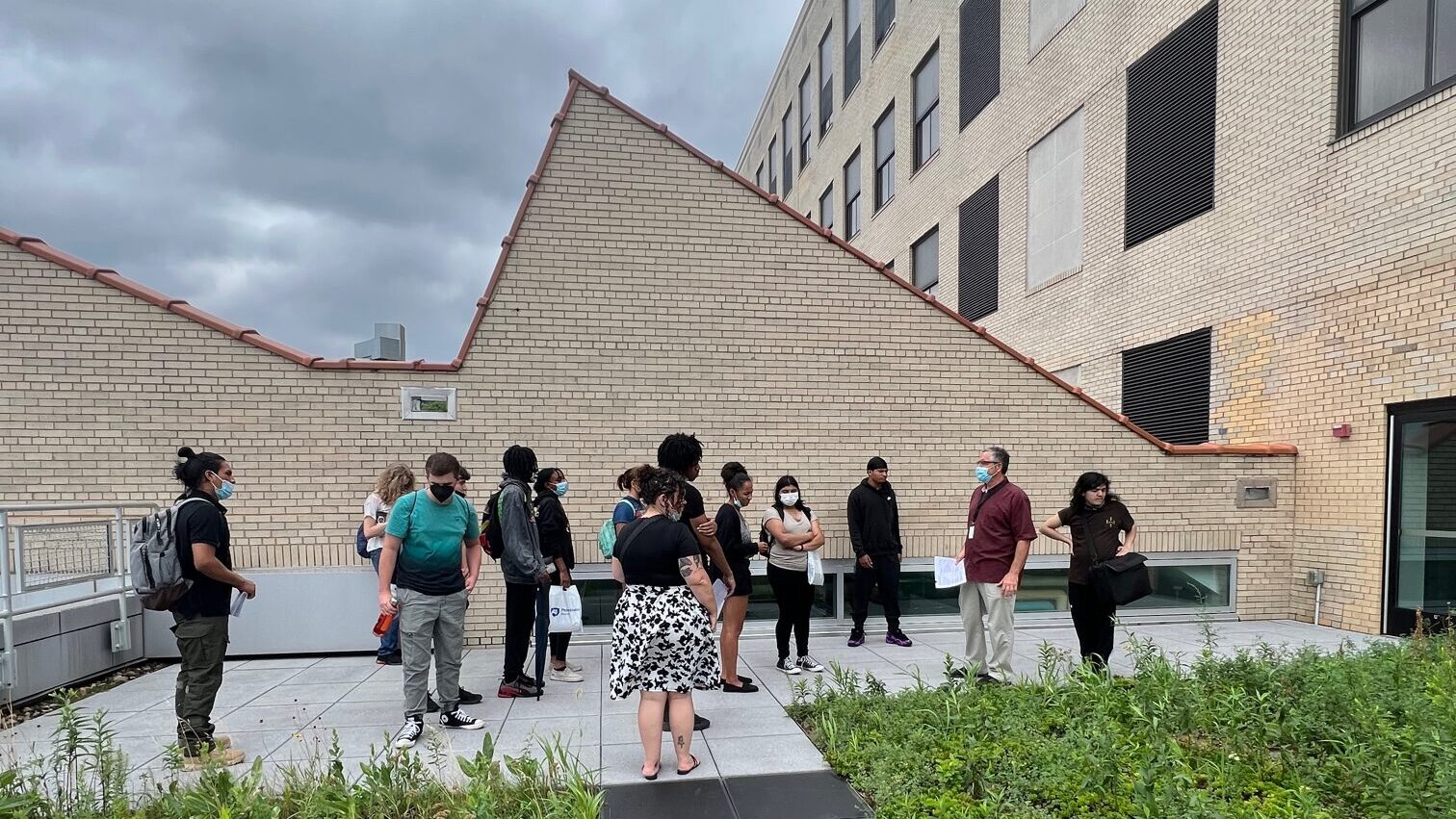
The penultimate week of the Readiness Institute Summer Program challenged learners to look to the future. They focused on soft skills and how they can use their strengths to get involved in the community, serve as mentors, and join in the fight for mental health care.
On-Site Activities
During their classroom rotation this week, learners explored what it means to be community and future ready through a self-organized learning environment (SOLE) activity. Throughout the summer, learners have been using the SOLE approach — which encourages inquiry and self-empowerment — to research and present on a variety of topics, including agents of change, global goals, and community and future readiness. Learners discovered that being community ready means finding ways to give back to the community in a way that reciprocates how it serves you, and being future ready means valuing the past while looking forward to the future and learning to thrive in a new environment.
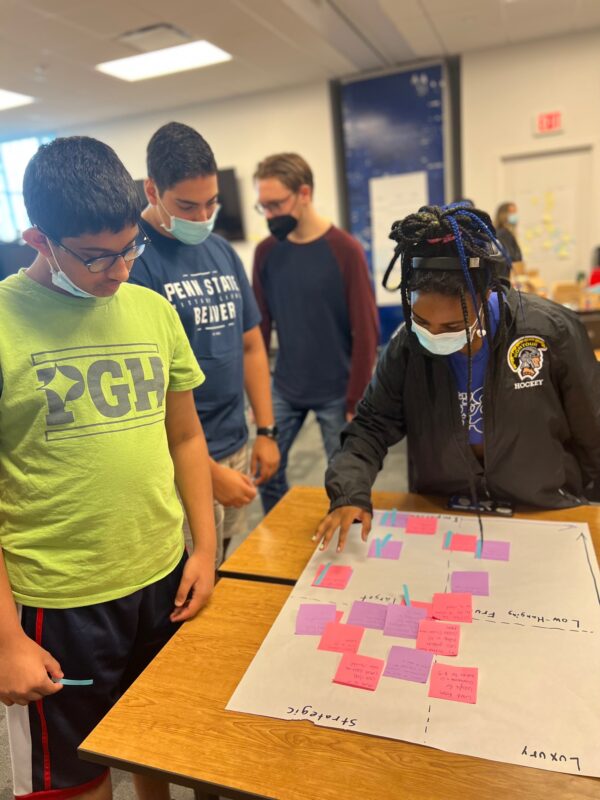
Guest speakers, site visits, discussion topics and interactive activities over the last few weeks have demonstrated to the learners the importance of being community and future ready and the value of being part of the conversation within their schools, families, and communities.
“As an individual, it is not enough to simply understand that you get one chance at life, you also need to be able to embrace the fact that you need to actively work to be ready for the future and commit yourself to working with your community.” — pulled from the SOLE presentation from learners, Anish R., Arto S., Tanush S., and Henry W.
On-site learners also continued to research and brainstorm for their summer-long Community Design Challenge to address urgent global issues on a local and attainable level. They used the “abstraction laddering” technique to identify their top three “whats” — aka solutions — and explored the “hows” — aka what they want to do and the resources they need to do it. From there, learners used this foundation to start developing a presentation that will be delivered at the end-of-summer celebration next week. Some of the learners’ challenges and solutions included:
How might we reduce gender inequality in the community?
What: Create student clubs about careers with gender inequality and how to get involved.
How might we be more sustainable and reduce waste in the community?
What: Utilize compost bins and reusable utensils in schools.
How might we improve technological literacy in schools?
What: Add more computer electives with qualified teachers and provide more exposure to out-of-school opportunities.
How might we cut carbon emissions locally?
What: Plant more trees with local organizations and encourage biking/walking/carpooling.
How might we reduce inequalities in education?
What: Fundraise for tuition assistance and provide accessible resources for grant/scholarships.
In the afternoon, Shauntae Myrick from Manchester Youth Development Center (MYDC) hosted an engaging workshop on mentoring. She encouraged learners to discuss what a mentor is and what a mentor does, and how anyone can be a mentor and inspire others. She also shared the 10 Commandments of Mentoring:
- Commit to the relationship
- Be on their side
- Show up!
- Have fun together
- Let them make choices
- Be positive
- Listen!
- Set realistic goals and expectations
- Demonstrate your respect
- Take responsibility for the relationship
“We are all different,” said Myrick when talking about the roles of mentors and what they can offer to mentees. “We are not meant to be here to be the same. We want to be authentic and uplifting.”
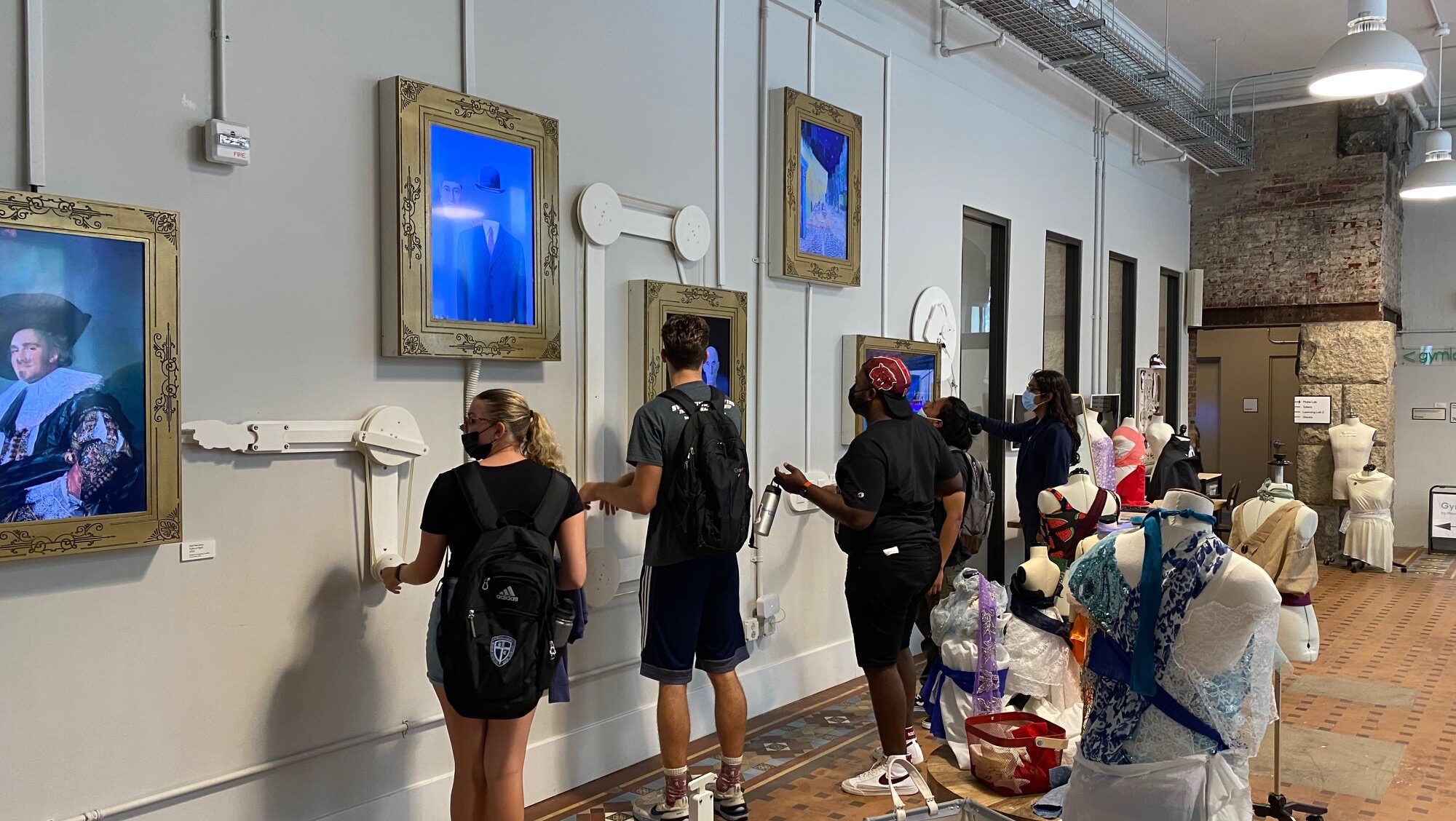
Off-Site Visits
Out of the classroom, learners got to have another college experience at Penn State Beaver. They heard a presentation about the school’s opportunities and discussed what a successful career could look like. They also played a few games and took a campus tour.
“Out of all the Penn State commonwealth campuses, this one was my favorite,” said learner Arto S. “The campus was six or seven buildings spread out over a larger area with lots of open space.”
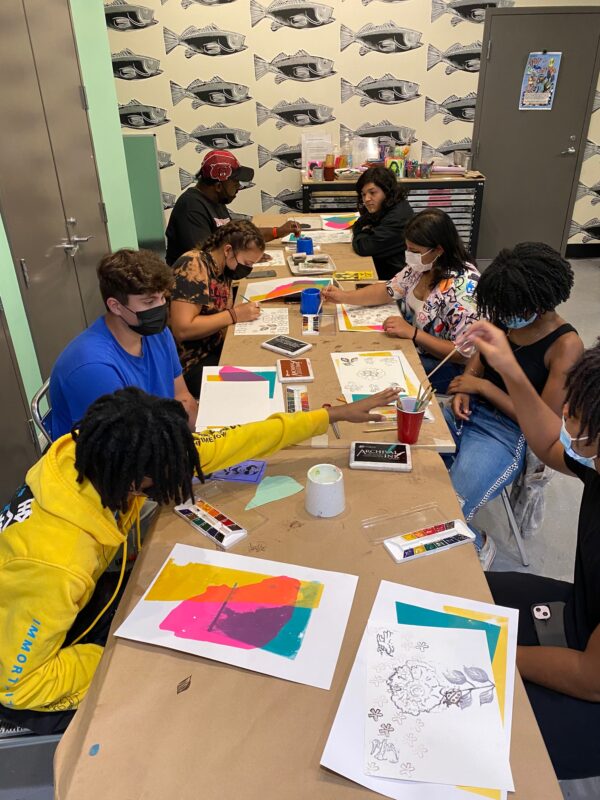
Learners then returned to the Energy Innovation Center (the location of the Readiness Institute at Penn State) and took a tour of the LEED Platinum–certified building. Tom Bartnik, director of the Penn State Center Pittsburgh, led the groups around the facility to check out its sustainability features, historical landmark elements, and the green roof. It was a great connection for learners to see how an old trade school was completely renovated and now, through the Summer Program, continues to host the education of the future leaders of Pittsburgh.
“It was super interesting and just all around cool to hear about its history and see it under construction,” said learner, Kalei N. “I thought it was amazing how they had renovated everything in the building and still made it so that it was energy efficient.”
During the entire group trip on Thursday, July 28, all 45 learners headed to the Northside to visit MYDC and the Manchester Academic Charter School (MACS). Learners toured the facility and met students at the school. They also got to tour the MuseumLab — part of the Children’s Museum of Pittsburgh aimed toward youth and teens — which also happens to be home to MACS’ middle school.
In the afternoon, learners checked out the Andy Warhol Museum. They got to tour the art museum and even tried their hand at screen printing, stamping, and watercolor painting.
“Today was so fun,” said learner, Kivon C. “The Warhol Museum elevated my mind to an artist level — I feel like Warhol, the second! The kids at Manchester were so fun, and the teacher was creative. We got to be superheroes, which taught the kids teamwork and creativity.”
Virtual Learning
The virtual agenda this week included reflections on site visits, career journeys, and personal readiness pathways. Learners also completed their training on Youth Mental Health First Aid, with instructors from Penn State’s 4-H team. Through this course, learners discovered ways to recognize warning signs of a mental health crisis and resources for help.
They also explored decision quality dimensions, including reasoning. They discussed desirable attributes of good reasoning, examples of good reasoning, and helpful tools for developing and documenting reasoning.
Next week is our final week of the Readiness Institute Summer Program, and we have a packed schedule! The theme next week is financial literacy, where we’ll talk about student aid, budgeting, and other helpful tips. We’ll then gather the whole group together for an end-of-summer celebration next Thursday.

